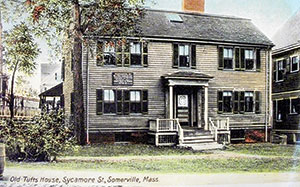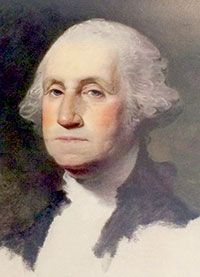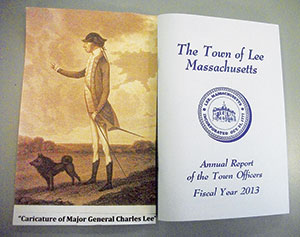Eagle Feathers #292 – General Charles Lee
By Bob (Monty) Doherty
General Charles Lee was a well-seasoned officer and a soldier of fortune who was seriously wounded and barely survived at the battle of Ticonderoga. Before the revolution, he had a colorful military career serving with the British Army in the French and Indian War. He later helped Portugal in its fight against Spain and fought the Turks along with the Polish Army.
At the prelude of the revolution, he was considered the most experienced soldier in North America and was almost appointed commander of the Colonial Army. This was despite his English ties and his differences with General Washington.

Lee was General Washington’s second in command. For a brief time, he enjoyed his quarters at Medford’s Isaac Royal mansion which he nicknamed after an ancient Scottish castle “Hobgoblin Hall.” Later as ordered, he moved to Sycamore Street (today’s 310-year-old Oliver Tufts Homestead) in Somerville to be closer to his troops and Washington’s headquarters. From here, he commanded the left wing of the Colonial Army during the siege of Boston in 1775-1776. Lee Street in Somerville bears his name.
General Lee was considered an extremely valuable prize for our new army. He shined in battle but was captured by the British and exchanged after a year of imprisonment.

After many serious and embarrassing blunders, he infuriated General Washington by starting an unauthorized and nearly disastrous retreat in the face of the enemy. He was convicted of disobedience of orders, misbehavior before the enemy and disrespect to General Washington. For this, Congress relieved him of his command.
In 1777, Lee, Massachusetts attempted to name itself Washington after the commanding General but a neighboring town won the privilege. At that time, because General Lee shared in riding the crest of popularity, the area’s residents honored him by naming their town Lee. Despite the negative controversy regarding Lee, the town is still proud and is known as the “Gateway to the Berkshires.”

Was he a great patriot or a mortal enemy? Was he a Nathan Hale or a Benedict Arnold? These questions still remain today.
















Reader Comments